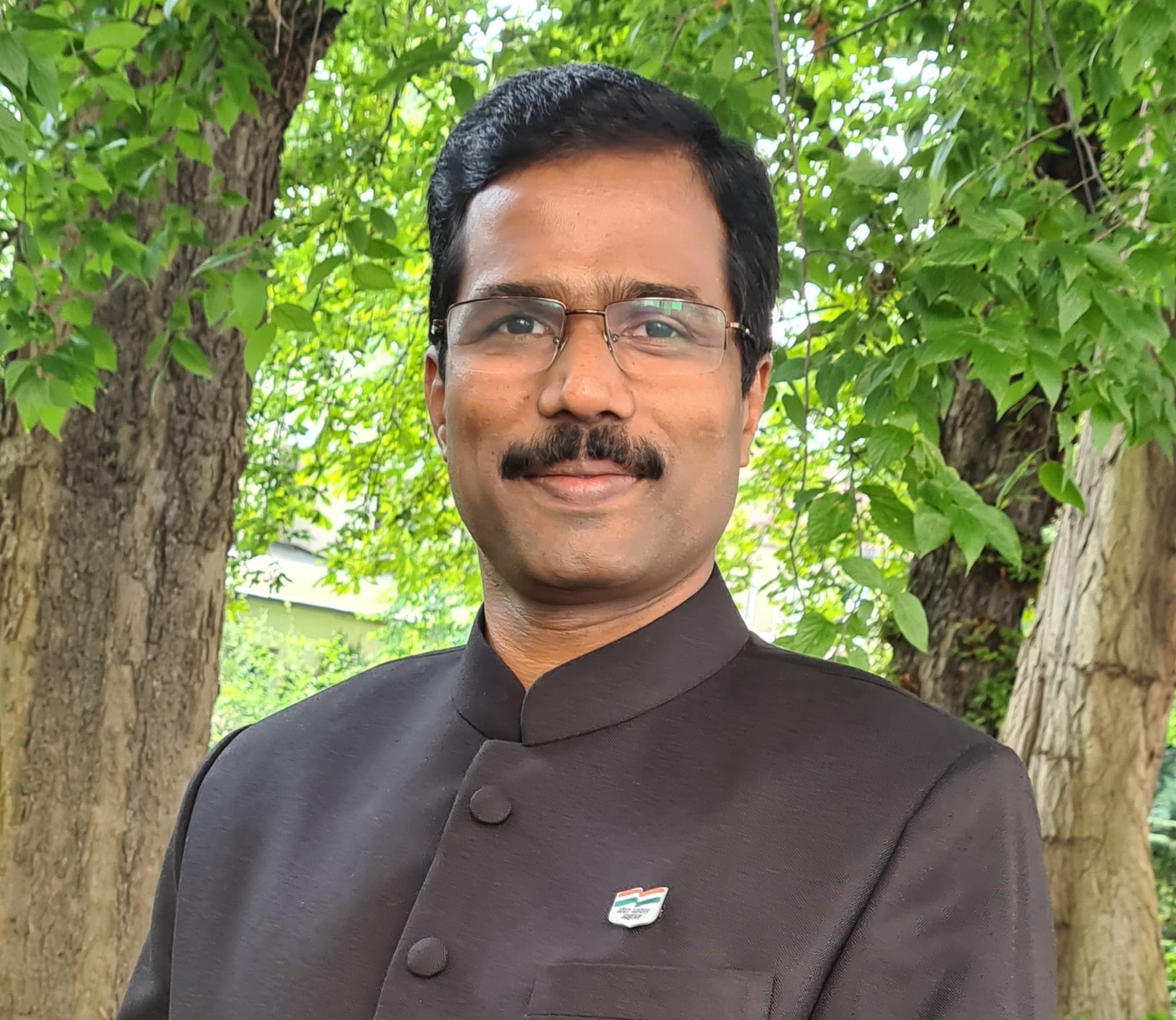 Dr.Madhusudan R Nandineni obtained his Baccalaureate degree in Microbiology from Nizam College, Hyderabad, and Master of Science Degree in Biotechnology from University of Hyderabad, Hyderabad. After a brief stay at the Indian Institute of Science, Bangalore as Junior Research Fellow, he joined Centre for Cellular and Molecular Biology (CCMB), Hyderabad to pursue his Ph D thesis work. His Doctoral thesis research, under the guidance of Dr J. Gowrishankar at CCMB was in the broad area of bacterial genetics and physiology. His PhD work on 'Genetics of adaptation to low-water-activity stress in Escherichia coli: identification and characterization of insertion mutations conferring NaCl-sensitivity' has led to the identification of at least five novel hitherto unknown genetic loci to be involved in water-stress tolerance in E. coli. His work also identified that a previously uncharacterized ORF yggA was involved in arginine efflux from E.coli strains and its expression is controlled by a LysR-type transcriptional regulator called ArgP. Based on this identification, the locus has been re-designated as argO. This observation was the basis for filing an international patent application, which involves a microbial process for arginine production. Dr.Madhusudan R Nandineni obtained his Baccalaureate degree in Microbiology from Nizam College, Hyderabad, and Master of Science Degree in Biotechnology from University of Hyderabad, Hyderabad. After a brief stay at the Indian Institute of Science, Bangalore as Junior Research Fellow, he joined Centre for Cellular and Molecular Biology (CCMB), Hyderabad to pursue his Ph D thesis work. His Doctoral thesis research, under the guidance of Dr J. Gowrishankar at CCMB was in the broad area of bacterial genetics and physiology. His PhD work on 'Genetics of adaptation to low-water-activity stress in Escherichia coli: identification and characterization of insertion mutations conferring NaCl-sensitivity' has led to the identification of at least five novel hitherto unknown genetic loci to be involved in water-stress tolerance in E. coli. His work also identified that a previously uncharacterized ORF yggA was involved in arginine efflux from E.coli strains and its expression is controlled by a LysR-type transcriptional regulator called ArgP. Based on this identification, the locus has been re-designated as argO. This observation was the basis for filing an international patent application, which involves a microbial process for arginine production.
Subsequent to his Doctoral work, he joined Dr Susan J Baserga's laboratory in the department of Molecular Biophysics and Biochemistry at the Yale University School of Medicine, New Haven, CT, USA for postdoctoral research work. He worked in the area of ribosome biogenesis and ribosomal RNA processing employing the baker's yeast (Saccharomyces cerevisiae) as model system. He was involved in characterizing the role of several proteins, such as Utp16, Fap7, Dbp8, Esf2 and YDR026C in ribosome biogenesis. During his stay in United States, he developed keen interest in forensic science disciplines and obtained training in advanced criminalistics and advanced crime scene investigation disciplines at the Department of Forensic Science, University of New Haven, CT, USA. He also visited and attended courses at the Department of Forensic Biology, Office of Chief Medical Examiner, New York and Connecticut State Forensic Laboratory, Meriden, CT. He returned to India to join CDFD as Staff Scientist in August 2005. His current research interests include studies on human genetic diversity in Indian populations, development of novel methodologies for human forensic DNA profiling, development of molecular markers for plant genetic fidelity testing and detection of genetically modified foods employing DNA-based markers.
He has been the recipient of Innovative Young Biotechnologists Award (IYBA-2006), Max Planck India Visiting Scientist Fellowship (2007) and BioAsia-2007 Innovation Award for Young Scientists.
|